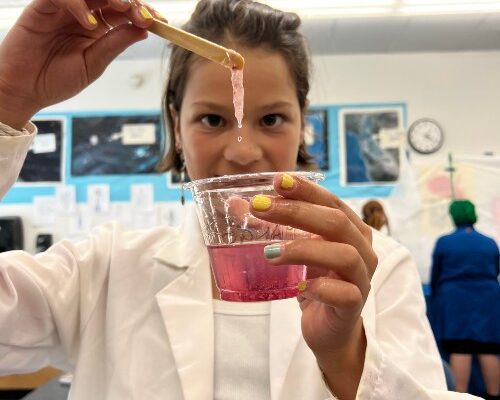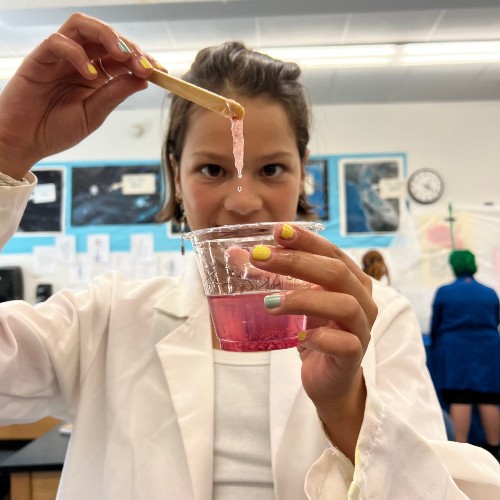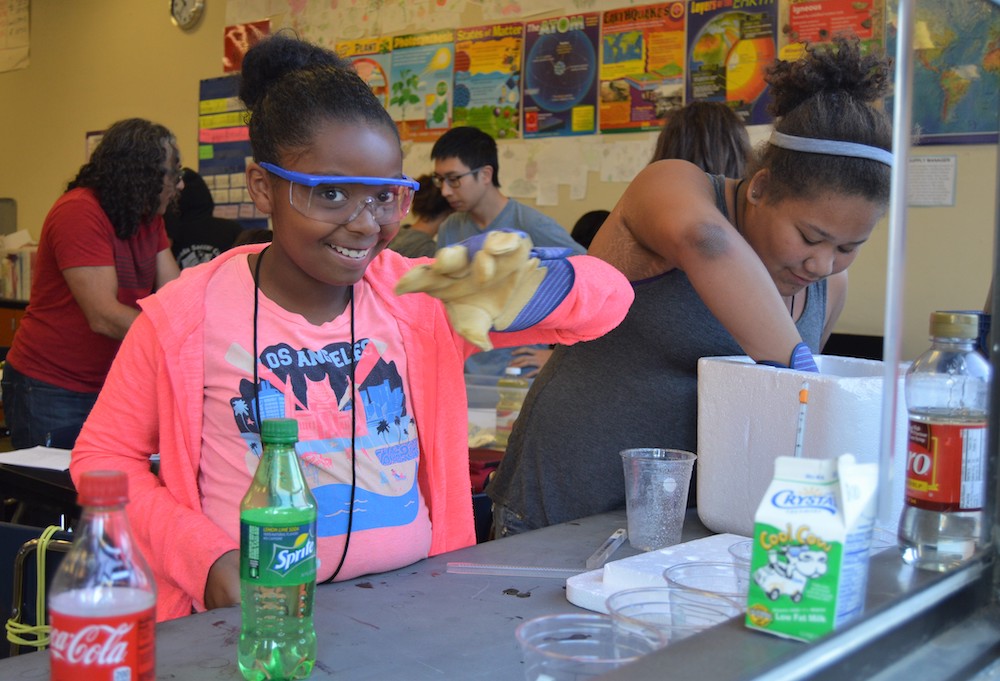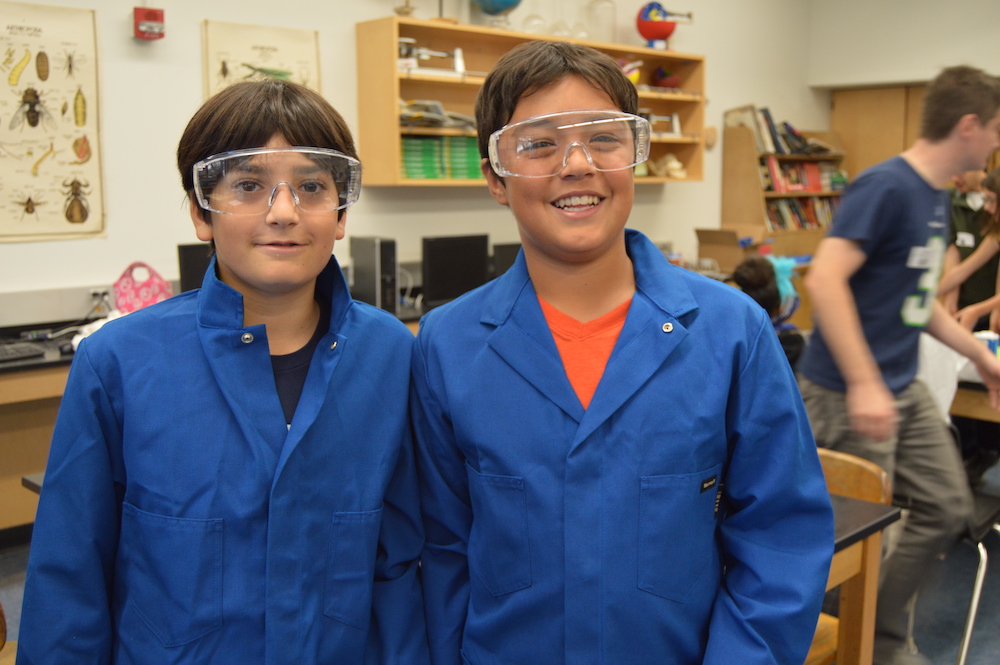
Celebrating 10 Years of Mentoring for Middle School STEM Success
October 2023
Now in its 10th year, the CRS “Be a Scientist” mentoring program has provided nearly 7,000 Berkeley 7th grade students with a rare and transformative experience: take charge of their own learning by conducting a two-month independent, self-selected science investigation with coaching and support in class from UC Berkeley scientists and engineers.
In their post-program reflections, middle school about what they learned, and, more importantly HOW they learned:

I liked designing my own experiment and feeling like a scientist. My mentor was able to help me with all the things that I needed. I was also able to learn a lot of things about being a scientist.

Now that I have done the Be a Scientist program, I now think that science is all around me, like gravity and life.

It was cool having a scientist mentor who speaks Spanish, like me.
The program pairs students with a scientist mentor who gives guidance as students select their testable questions, design their experiment, plan and assemble the materials, run trials, collect and analyze data, and share their own unique findings with fellow students.
“We’ve learned how to refine what we offer the students and do so in a way that gives them an opportunity to grasp the concepts, have ownership over their ideas and work, and really run with it. From parachutes for phones, observing the flow of dry ice vapor, to dissecting mammal versus fish eyes and rotting meat for maggots, we’ve seen it all! And I can’t wait to see what they come up with this year,” says BAS program coordinator Darlene Yan.
The program aims to ensure students of color, lower income students, girls, and others from groups traditionally underrepresented in STEM fields have meaningful, authentic, successful learning experiences and gain confidence as someone who can effectively use the practices of science to communicate and evaluate information and solve problems. Mentors from across a wide array of STEM disciplines reflect the diversity of students in the classrooms, including Spanish speaking mentors for the Spanish language immersion science classes.